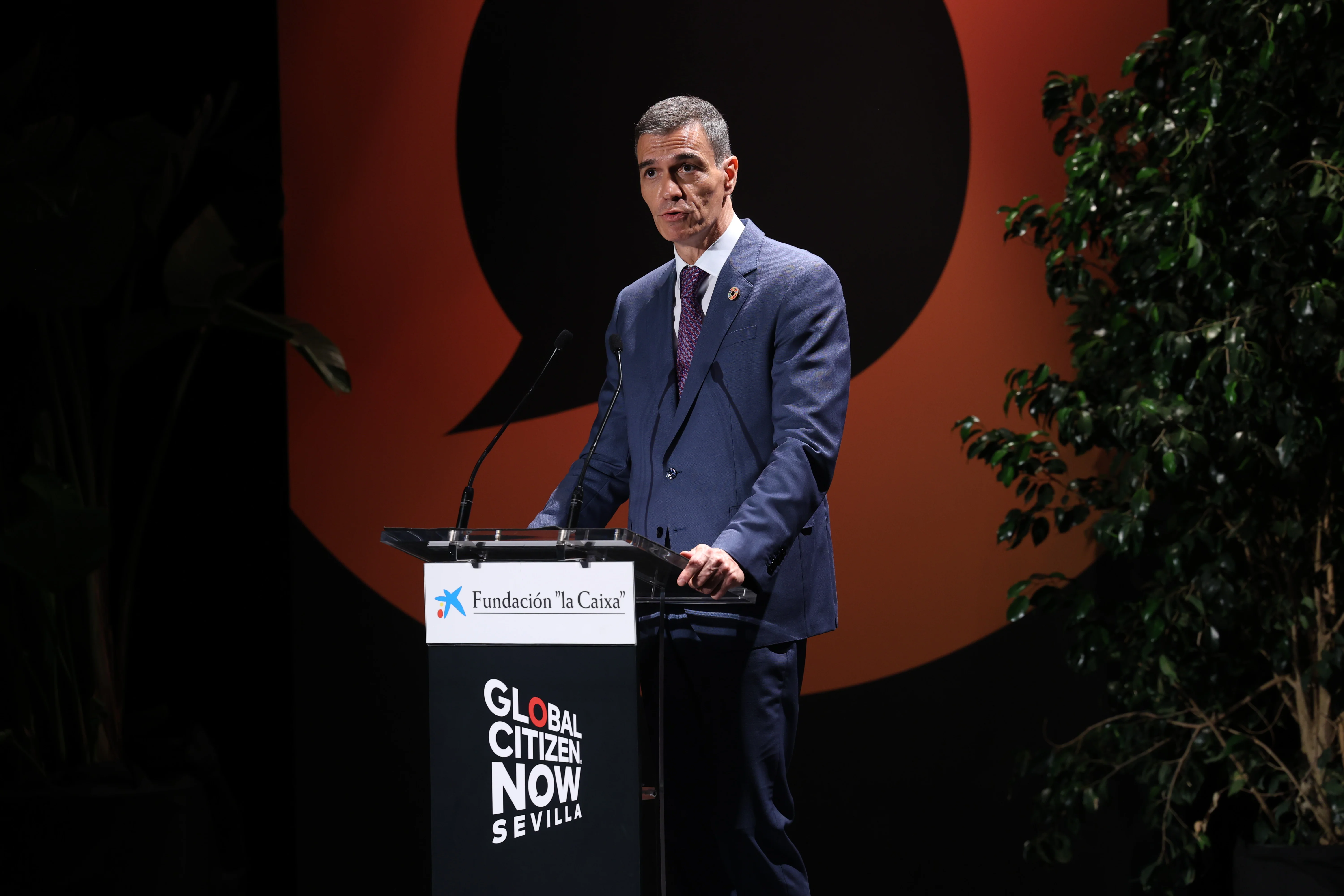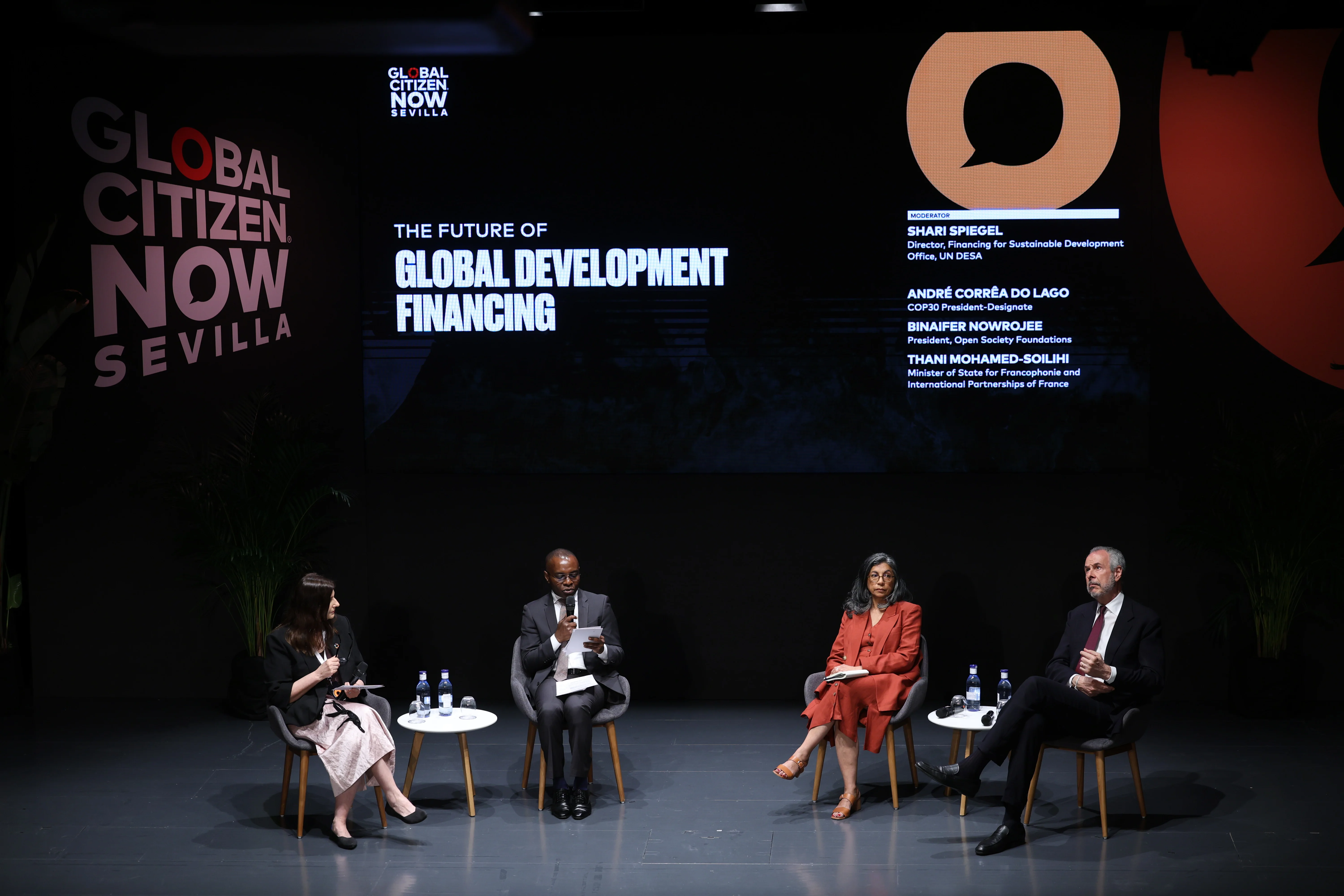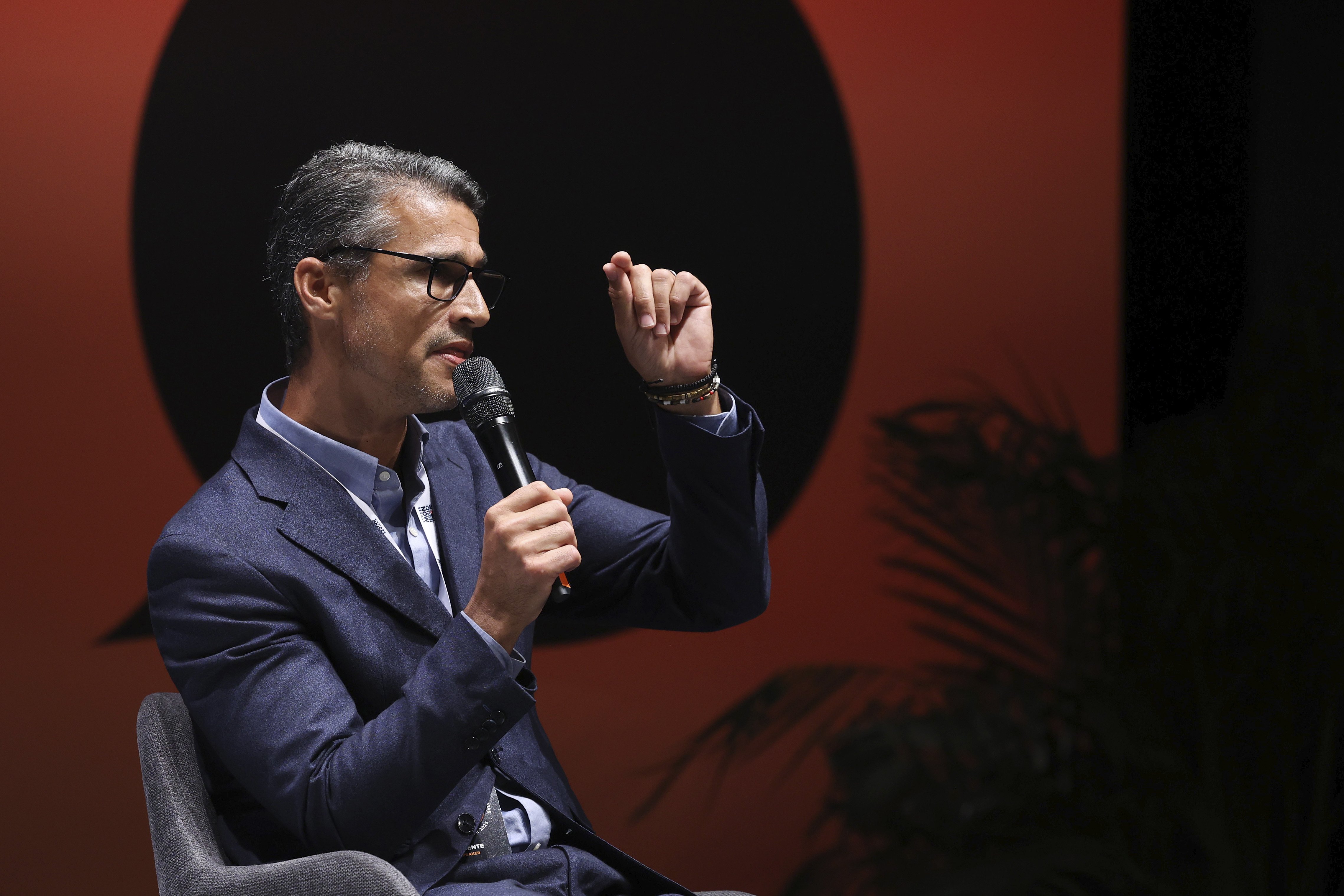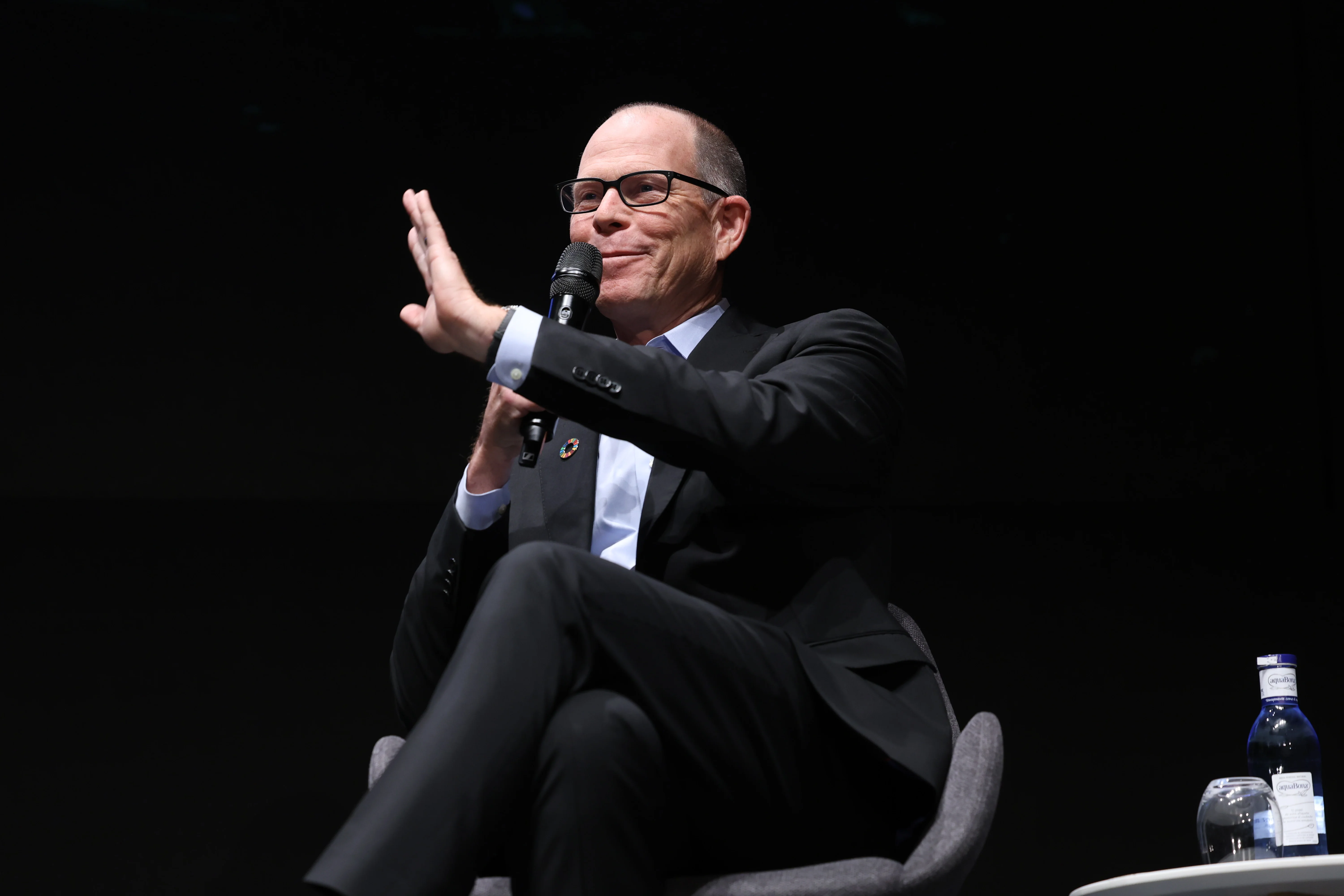Global Citizen NOW officially touched down in Europe for the first time on June 29. Hosted at the stunning CaixaForum in Sevilla on the eve of the United Nations’ (UN) fourth Financing for Development (FfD4) conference, this one-day summit cohosted by the Government of Spain brought together some of the world’s most influential leaders, policymakers, and advocates to kick off the week of policy discussions ahead.
Through a series of dynamic discussions illuminating new ways to reform international finance, speakers at Global Citizen NOW: Sevilla explored how we can untangle financial systems and advocate for reforms that steer investment towards equitable economic and climate solutions, particularly for the world’s most vulnerable communities.
The event provided a crucial opportunity to rally global leaders and voices in one place and push big ideas forward. Open discussions like these are essential to unpack what’s working (and just as importantly, what’s not) in the world of international development finance so that leaders can create systems that benefit all of us.
Here’s a rundown of the ideas and moments that, despite the growing challenges we see worldwide, drove a powerful message of hope.
Putting Global Citizen NOW: Sevilla in Context
With slashed international aid budgets and growing global inequality worldwide, Global Citizen NOW landed in Seville at a critical moment. This summit was the latest iteration of Global Citizen NOW, our premier thought leadership summit series that’s taken us all over the world, from New York City, to Melbourne, to Rio de Janeiro. These summits are more than just talking about the world’s biggest challenges. They’re all about figuring out real ways decision makers and engaged citizens alike can drive action to solve them — not someday, but now.
Building on our ongoing Protect the Amazon and Scaling up Renewables in Africa campaigns, Global Citizen NOW: Sevilla had a clear mission: to push world leaders to commit to bold financial pledges that tackle extreme poverty on the eve of the FfD4 conference. Leaders must act now to reform financial systems, fund climate solutions, and ensure a sustainable future for all.
In a moment of rising geopolitical tension and compounding global crises, Global Citizen NOW summits offer the chance to convene world leaders, innovators, and advocates in conversation. Today, that means exploring what it will take to reinvigorate global cooperation for a new era of development, focusing on how institutions can adapt and new partnerships must evolve to meet future generations’ needs.
What We’re Advocating For
At Global Citizen NOW: Sevilla, we crafted an agenda to urgently call for action at the FfD4 summit around five key priorities:
- Debt relief for low- and middle-income countries, so countries can invest in public services like health and education rather than debt payments.
- Widespread embrace of innovative finance tools, including reallocation of Special Drawing Rights (SDRs), climate bonds, and blending public and private money for greater impact.
- Binding commitments to international aid that meet at least 0.7% of wealthy countries’ budgets.
- Emphasis on Global South priorities and perspectives in development institutions like the International Monetary Fund (IMF) and the World Bank.
- Concrete accountability mechanisms with timelines, follow-ups, and full transparency, so there’s no more broken promises or half measures when it comes to climate finance.
Inside the Summit: Key Panels and Conversations
The day opened with welcoming remarks from Global Citizen CEO Hugh Evans and actress, humanitarian, and Global Citizen Ambassador Nomzamo Mbatha, who also served as host throughout the summit.
Pedro Sánchez, President of the Government of Spain, delivered an opening address to begin the day, emphasizing the importance of hope and urgently delivering economic justice in a moment of rising need amid shrinking aid budgets. “The very fact that this conference is happening — while conflicts rage across the globe — is a reason to be hopeful,” he told the audience. “Hope matters, and action delivers.”
 Pedro Sánchez, President of the Government of Spain, delivered an opening address to begin Global Citizen NOW: Sevilla, emphasizing the importance of hope and delivering urgent economic justice.
Pedro Sánchez, President of the Government of Spain, delivered an opening address to begin Global Citizen NOW: Sevilla, emphasizing the importance of hope and delivering urgent economic justice.
A series of panels built off that message of hope inspired by action, including:
Reimagining Global Cooperation: From Aid Dependence to Shared Prosperity — Dr. Akinwumi Adesina, President of the African Development Bank, and Maria Fernanda Espinosa, Executive Director of GWL Voices and former UN General Assembly President, opened the day’s panels by laying out a vision to shift development and traditional aid models away from dependency towards mutual accountability and reciprocity instead.
The Future of Global Development Financing — In a wide-ranging panel moderated by Shari Spiegel of the UN Department of Economic and Social Affairs, André Corrêa do Lago, COP30 President-Designate, Binaifer Nowrojee, President of Open Society Foundations, and Thani Mohamed-Soilihi, France’s Minister of State for Francophonie and International Partnerships, collectively confronted how we can rebalance international financing systems and debt to ensure countries across the Global South are able to invest in their own futures.
Aid and Development at the First Mile — Moderated by Laura Thompson, Deputy Director General of the International Labour Organization, this panel featured Alvaro Lario, the President of the UN’s International Fund for Agricultural Development, Jayati Ghosh, UN High-Level Advisory Board, and Daouda Sembene, CEO of AfriCatalyst, highlighting how traditional aid models often fail to reach those most in need. Speakers emphasized the need for more country-led co-financing models and more equitable partnerships across the board.
Financing Africa's Renewables Future — In this forward-looking conversation, President of the European Commission Ursula von der Leyen, Global Citizen CEO Hugh Evans, and Nomzamo Mbatha discussed how Sevilla fits into the global arc leading to COP30 in Belém and the G20 Summit in Johannesburg this year, emphasizing how the world can work together to accelerate renewable energy access across Africa and reduce energy poverty with the right investments and political will.
Closing the Global Financing Gap — Laurence Tubiana, CEO of the European Climate Foundation, Duncan Ward, CEO of TransEnergy Global, and Mohamed Juldeh Jalloh, Vice President of Sierra Leone, engaged in a conversation moderated by Mick Sheldrick, Chief Policy, Impact and Government Affairs Officer at Global Citizen, addressing the dire disconnect between growing global needs and limited funding options. They spoke on reforming multilateral development banks, the potential of solidarity levies, and new forms of cross-sector partnerships to revolutionize climate finance. Before the session formally began, special guest Yacine Fal, Special Representative to the Africa Development Bank’s Investment Forum, joined Sheldrick on stage.
Spotlight: Philanthropy’s Role in Systemic Reform — In a one-on-one conversation, Mark Suzman, CEO of the Gates Foundation, and Nomzamo Mbatha spoke together to explore how philanthropy, when done right, can go beyond emergency humanitarian response to instead drive long-term, systemic change across areas such as global health and education inclusively and equitably for all.
Later in the day, appearing through a video address, His Excellency Ban Ki-moon, former UN Secretary-General, reminded attendees of what’s truly at stake. As climate shocks, hunger, and inequality worsen, he urged leaders to act with urgency and compassion — especially for those on the front lines of these crises. “World leaders must use all the tools available to make the current financial system fit to end extreme poverty, adapt to the climate crisis, reduce inequalities, and make education and health accessible to everyone.” His call to action included a direct appeal for smallholder farmers to receive easier access to financial systems, resonating with the day’s earlier discussions.
 (L-R) Shari Spiegel, Thani Mohamed-Soilihi, Binaifer Nowrojee, and André Corrêa do Lago speak on rebuilding international financial systems with Global South priorities front of mind.
(L-R) Shari Spiegel, Thani Mohamed-Soilihi, Binaifer Nowrojee, and André Corrêa do Lago speak on rebuilding international financial systems with Global South priorities front of mind.
A Key Announcement
A major focus of Global Citizen NOW: Sevilla was finding bold, untapped ways to unlock more capital for development, and how to get it where it’s needed most. One key example: Global Citizen’s Scaling Up Renewables in Africa (SURA) campaign, launched with President Ursula von der Leyen and South African President Cyril Ramaphosa, and with policy guidance from the International Energy Agency. The campaign aims to help triple Africa’s renewable energy capacity by 2030, create 500,000 clean energy jobs, and close the energy access gap for the 600 million people across the continent still living without reliable power. It will culminate in a major pledging moment this November, alongside the G20 Summit in Johannesburg.
As President von der Leyen noted during her panel, Africa has some of the world’s richest solar resources. Yet today, just 3% of global energy investment reaches the continent. Without a swift shift in capital flows, the opportunity to build capacity, boost climate resilience, and create positive economic development could be lost amid political stagnation and rising temperatures.
But later that day, a breakthrough announcement helped bring the campaign’s vision to life. In a historic first, Duncan Walsh, CEO of SURA partner TransEnergy Global, revealed Project Mzansi: the purchase of a major coal reserve in South Africa’s Limpopo province — not to extract it, but to lock it away in the ground for at least 100 years. The reserve is viable and nearly operational, meaning this action isn’t symbolic — it’s preventing emissions before they happen.
 TransEnergy Global CEO Duncan Ward announces Project Mzansi, the purchase of a major coal reserve in South Africa that will keep the coal on site legally in the ground for at least the next 100 years.
TransEnergy Global CEO Duncan Ward announces Project Mzansi, the purchase of a major coal reserve in South Africa that will keep the coal on site legally in the ground for at least the next 100 years.
Over the next 100 years, 118 million tons of coal will remain untouched, stopping 236 million tons of CO₂ from entering the atmosphere — the equivalent of planting a billion trees and letting them grow for a decade. To fund the initiative, TransEnergy Global will issue energy transition credits — a new kind of carbon credit tied to fossil reserves that stay in the ground. These credits will be sold to companies seeking to meet their own decarbonization targets, and the proceeds will be reinvested in local communities and renewable projects across South Africa. That includes expanding solar, wind, biomass, and electrification — and creating new green jobs for workers transitioning away from coal.
The stakes are especially high in South Africa, where 82% of electricity still comes from coal, and thousands of livelihoods depend on it. Public efforts to finance a clean energy transition have repeatedly fallen short. This marks the first time that a private company has purchased a coal mine in the name of climate action — and exploring new avenues of climate finance like this could help fill the financing gap further and offer a replicable model to the rest of the world, turning current climate liabilities into future climate assets.
Beyond the Summit
During a private, high-level lunch held earlier in the day, Global Citizen also convened longtime partners and new allies for an intimate conversation on how civil society and the private sector can bridge critical gaps that governments alone cannot fill. The discussion centered on key questions facing the future of development financing: how to drive innovation outside official channels, engage young people, reimagine public-private partnerships, and ensure urgent needs — like nutrition, education, and health — aren’t sidelined.
 Gates Foundation CEO Mark Suzman speaks on the international development finance architecture, explaining how leaders and advocates can drive long-term systemic change to improve health and education outcomes for future generations.
Gates Foundation CEO Mark Suzman speaks on the international development finance architecture, explaining how leaders and advocates can drive long-term systemic change to improve health and education outcomes for future generations.
After the day concluded, there was more action on the ground in Spain. Global Citizen partnered with Hungry for Action to deliver a powerful visual demonstration across the city. Iconic Sevilla landmarks — including the CaixaForum, Las Setas, La Catedral, and the Triana Bridge — lit up with projections shining a spotlight on the global hunger crisis and asking a simple, urgent question for world leaders in town for FfD4: “Who do you serve?”
The activation marked the latest chapter in the #EmptyPlates campaign, demanding that negotiators prioritize hunger and nutrition. In a world that produces enough food to feed everyone, 733 million people still go to bed hungry every night. That’s not an accident. The projections served as a stark reminder that hunger is not inevitable — it’s the result of political and policy choices. This crisis could be completely averted, but only if negotiators treat nutrition not as a side issue, but as a central pillar of sustainable development financing.
Looking Ahead
Global Citizen NOW: Sevilla is far from the end of this discussion. From here, our movement is charging forward with stops in Detroit, Belém, and Johannesburg across 2025, with eyes firmly fixed on generating real results for people and planet out of COP30 and the G20 Summit this November. These next stops will build further momentum on some of our biggest campaigns to date, including Protect the Amazon and Scaling Up Renewables in Africa.
The issues on the table — energy access, debt justice, climate finance — impact real lives, futures, and entire generations. But the facts are clear. Solutions are on the table and within reach. All that’s missing is the political will to enact them. But as we’ve seen at this summit, the desire to take bold action is on the rise. As President Sánchez said at the start of the day, “We need to roll up our sleeves and do the work that hope demands.”
So let’s get to work. Join us by taking action today on our website or on the Global Citizen app. Start by signing our petition calling on leaders attending FfD4 to deliver on our policy asks. And keep learning about the current global financial system, and how we can all demand those in power reshape it to create a fairer, more just future for all.